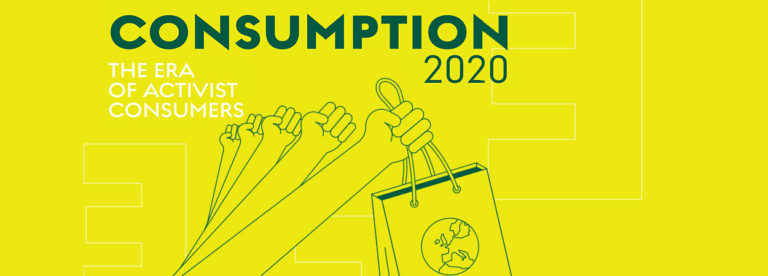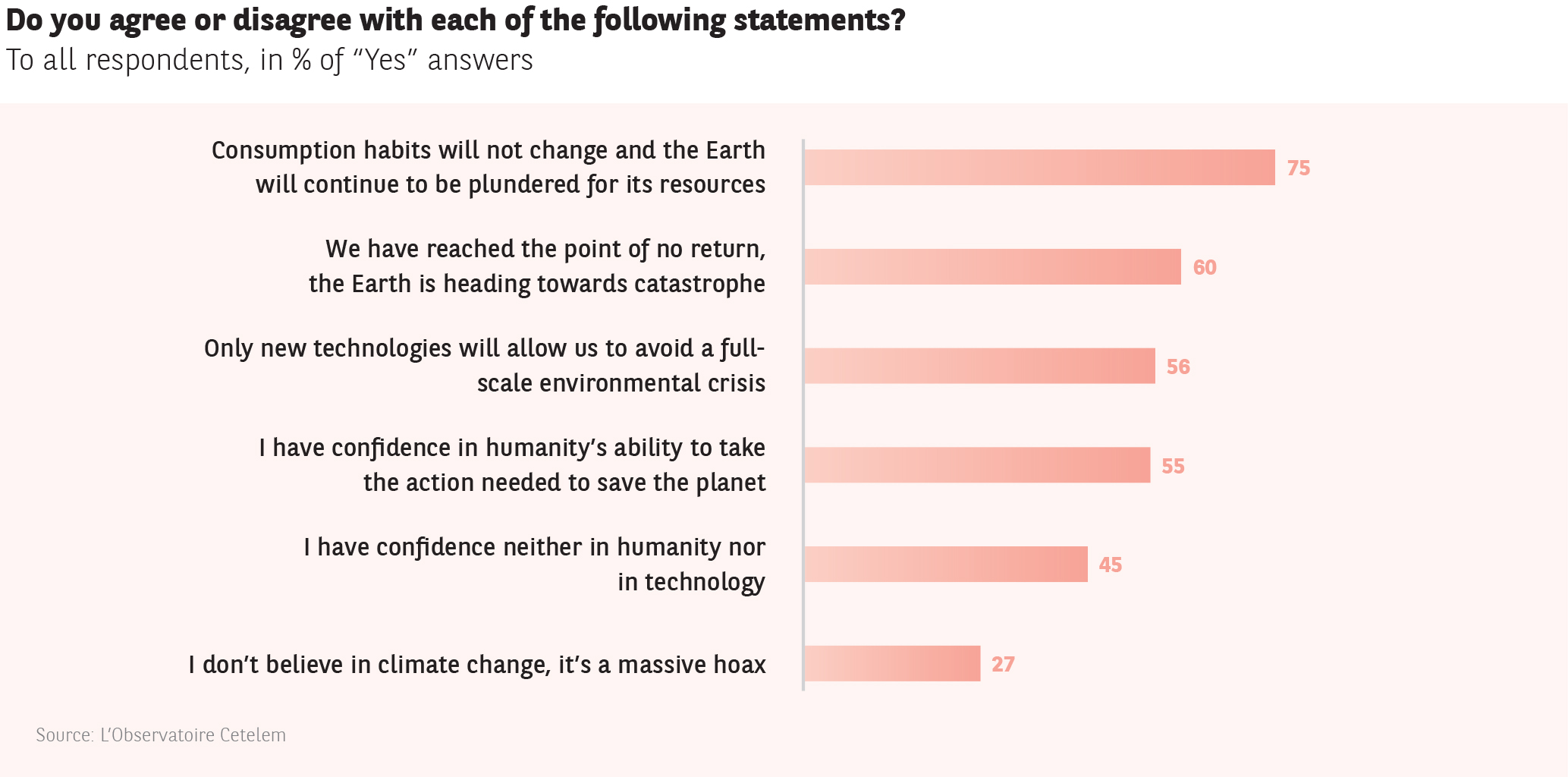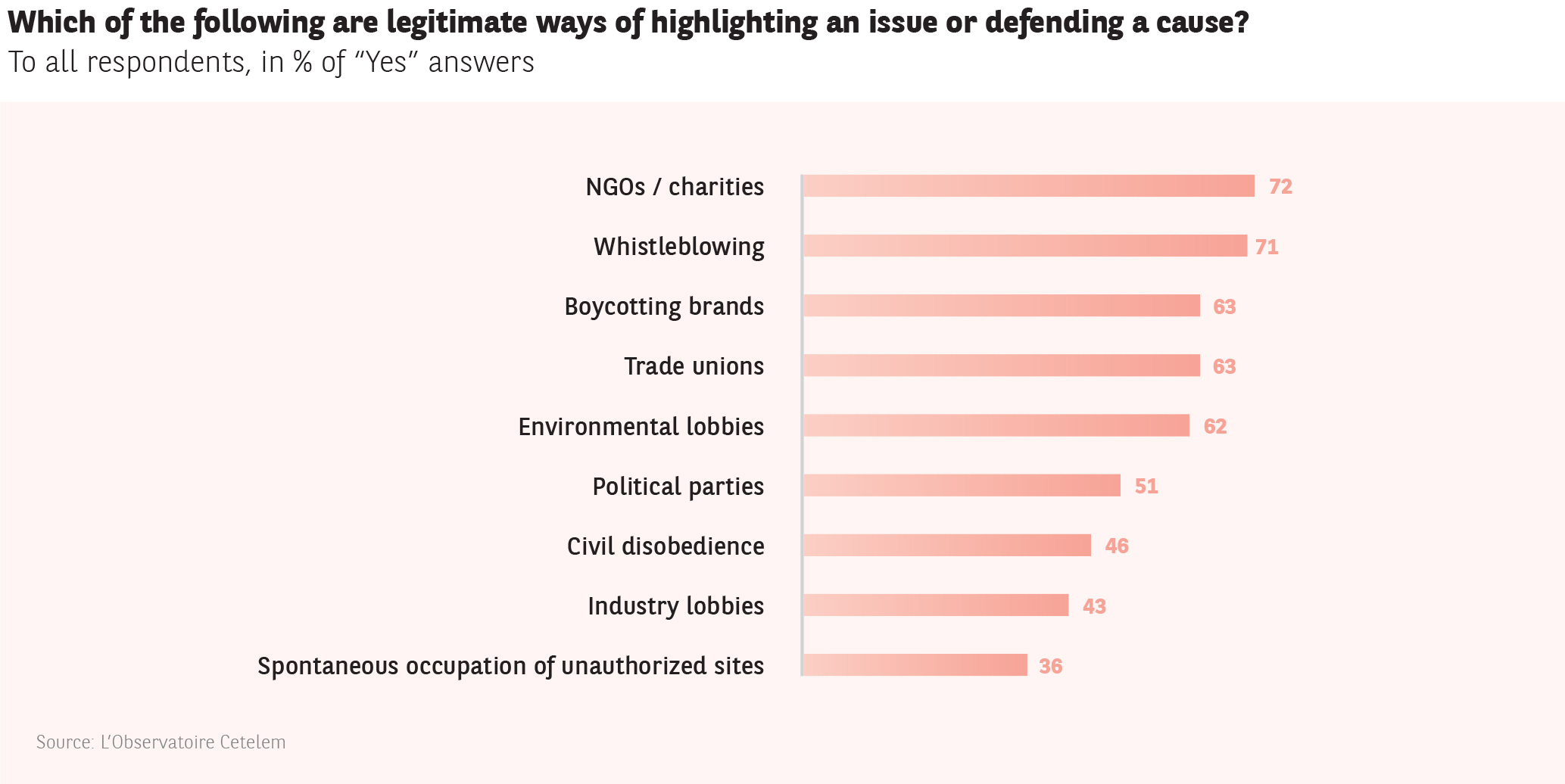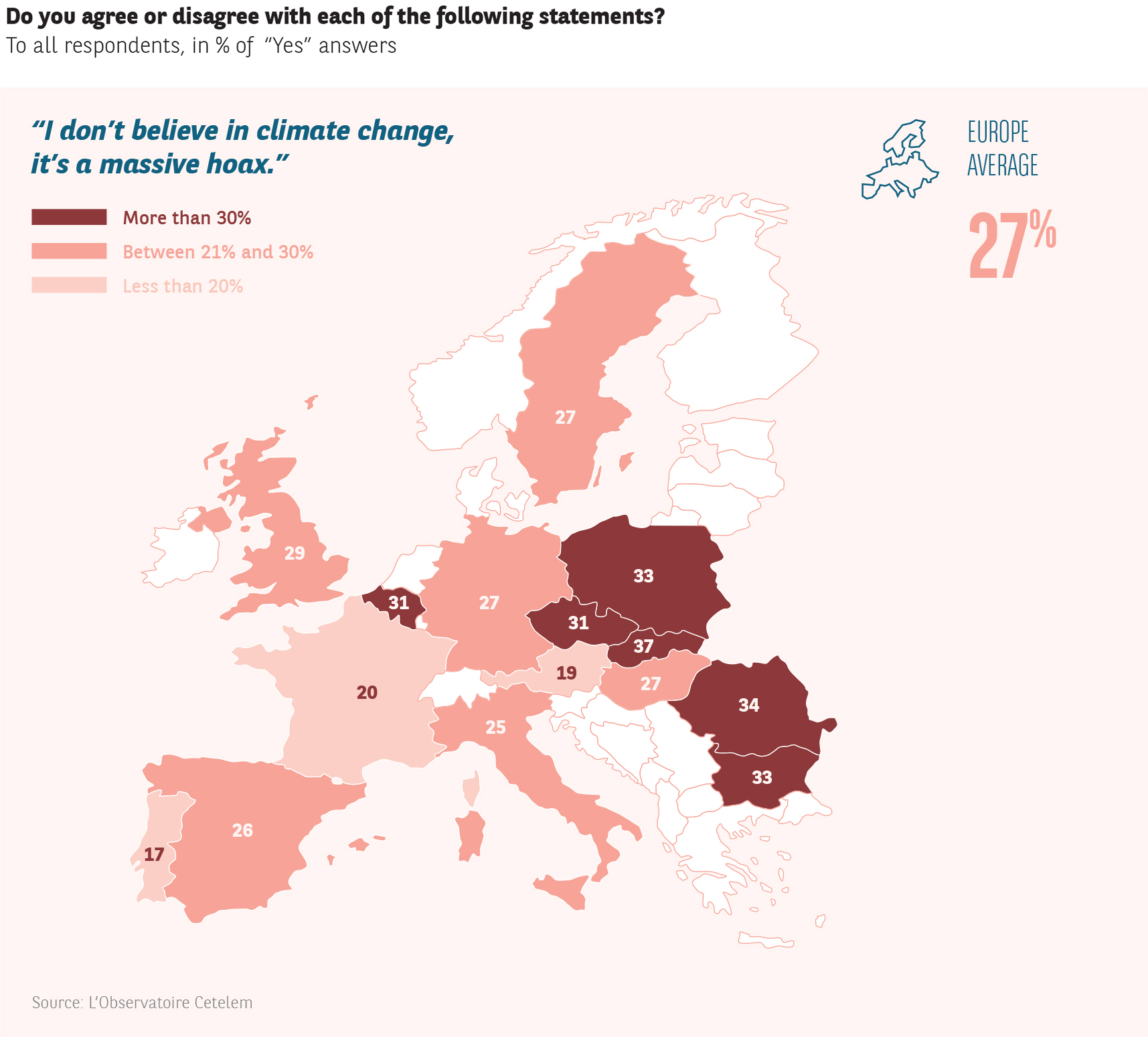Doubt reigns in Europe


In France, the Glorious Thirty years were its most tangible expression. While consumption was once synonymous with new horizons, today a more appropriate term would be unreason. More than ever, the future of the planet is a source of concern for Europeans.
A WORLD TURNING SOUR
Doubts and concerns are at the forefront of people’s minds today. But the future is not looking brighter (Fig. 11).
3 out of 4 Europeans are of the bleak opinion that the earth will continue to be plundered for its resources, as consumption habits fail to change. the most pessimistic views on this subject are to be found in Romania (85%), Germany and Austria, no doubt as a result of their long-standing environmental awareness and the strong influence of green parties in these countries.
The Portuguese, Swedes and Belgians are the least downbeat.Further evidence of a general sense of pessimism that would make a collapsologist smile is the fact that 6 out of 10 Europeans believe the earth has reached the point of no return and that catastrophe awaits its inhabitants. The Portuguese are the most likely to express this fear, followed by the Germans and the Italians.
FIG. 11 :
A DEGREE OF CONFIDENCE IN PEOPLE AND TECHNOLOGY
So are we all doomed? Not necessarily. Two glimmers of hope are visible in this fog of negative opinion. First there is technology, which 56% of Europeans believe can help counteract the environmental crisis. Second, despite all the pessimism, there is a belief that humanity will be able to take the measures required to save the planet (55%).
You are most likely to meet a technophile in Eastern Europe, whose populations remain thankful for the way in which innovations have changed their lives in such a short time. This is also the region in which you will encounter the most humanists, along with the Iberian peninsula, with the Spanish placing particular faith in human beings. It should be stressed that seniors are less likely than millennials to opine that the point of no return has been reached, as well as placing more trust in technology and humanity.
A REJECTION OF INSTITUTIONS
So yes, there is a relative degree of confidence in humans, but not all of them (Fig. 12). It all depends to which group they belong. Members of NGOs or whistleblowers are considered by Europeans to have greater legitimacy to defend a cause or highlight an issue (72% and 71%).
Trade unions and environmental lobbies are also viewed as being credible advocates (63% and 62%). On the other hand, doubts remain when it comes to political parties and, to a greater extent, industry lobbies (51% and 43%).
This relative mistrust of institutions and industry is expressed most strongly by millennials.
Poland, Portugal and France are the most ardent supporters of NGOs and whistleblowers, while Sweden, Great Britain, Germany and, once again, Poland place greater trust in trade unions and political parties.
FIG. 12 :
MAKING ONESELF HEARD
The fact that Europeans believe it is justifiable to take action in support of a cause is a telling sign that activism is on the rise. Boycotting a brand is their preferred option (63%), although this is slightly less common among millennials, who are only now gaining awareness of consumerism and are therefore less likely to make this sacrifice. Almost 1 in 2 Europeans support civil disobedience. More than a third consider the spontaneous occupation of unauthorized sites to be a legitimate tool.
Millennials display a greater level of support for both of these forms of action, in which youthfulness is an advantage. The French and Swedes favour the boycotting of brands, while the Poles and Slovaks back civil disobedience and the occupation of sites.
THE EXISTENCE OF ENVIRONMENTAL PROBLEMS IS WIDELY ACCEPTED
Eastern Europe also stands out from the rest of the continent due to the high proportion of its inhabitants who declare themselves to be climate sceptics (Fig. 13).
While this opinion is expressed by 27% of respondents overall, which is significant in itself, the figure exceeds 30% in every country in this region, with the exception of Hungary. Conversely, the Portuguese, Austrians and French are in no doubt regarding the influence of humans on climate change.
FIG. 13 :



